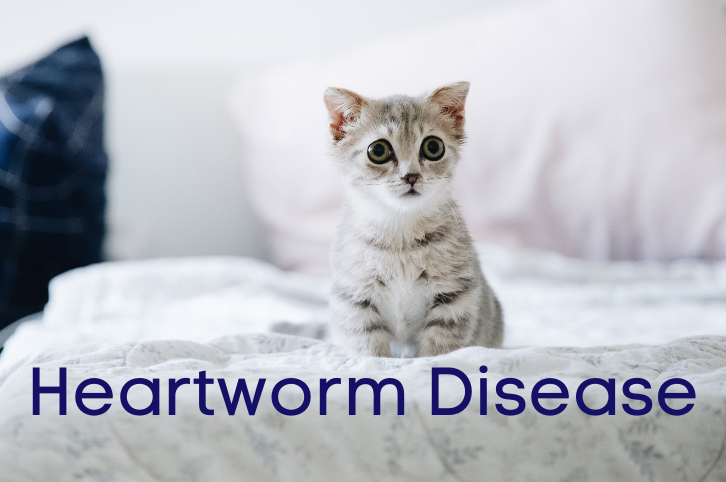The American Heartworm Society sponsors National Heartworm Awareness Month every April to educate pet owners and veterinarians about the devastating impact of this parasite on household pets. Approximately one million pets in the United States develop heartworm disease each year. This figure is alarming and tragic, especially when most cases of heartworm disease are preventable.
Mosquitos Are a Primary Carrier of Heartworm Disease
Most animals acquire heartworms when an infected mosquito bites them and transfers heartworm larvae into their body. The larvae develop into eggs within 14 days and adults capable of reproduction within six months. Adult heartworms can live up to seven years in dogs and three years in cats.
What Are Heartworms?
Heartworms are long, narrow parasites that can grow up to 12 inches in length. They live inside the blood vessels, heart, or lungs of their hosts. Left untreated, heartworm disease can cause heart failure, lung disease, or damage to other major organs in the body.
Heartworm disease primarily affects dogs, cats, and ferrets. The parasite can also live in coyotes, foxes, sea lions, and wolves. Veterinary experts consider coyotes and foxes primary carriers of heartworm disease since they typically live in wooded areas in urban communities.
Heartworm Disease in Dogs
Dogs are a natural heartworm host, which means heartworm eggs deposited into a dog’s body mature into adults that mate and reproduce again. Dogs affected by heartworm disease could potentially have hundreds of fully-developed heartworms in their body at a time. The disease may not produce any noticeable symptoms in the earliest stages, making it difficult to detect and treat. Here are the signs to look for as heartworm disease progresses:
- Avoidance of exercise
- Fatigue, even after mild activity
- Lack of appetite
- Mild but persistent cough
- Weight loss
Dogs in advanced stages of heartworm disease can develop a cardiac condition known as caval syndrome. Symptoms of this condition include labored breathing, dark or coffee-colored urine, pale gums, and a swollen belly. Caval syndrome is life-threatening, and few dogs survive it without prompt treatment. Even dogs who receive treatment for milder forms of heartworm disease may experience a permanent decrease in their quality of life.
Heartworm Disease in Cats
Symptoms of heartworm disease in cats typically do not appear until the advanced stages. The most common indication that a cat has a heartworm disease include:
- Asthma attacks
- Coughing
- Lack of appetite
- Vomiting
- Weight loss
Signs of late-stage heartworm disease in cats include fainting, seizures, and fluid accumulation in the abdomen. Some cats show no symptoms of the disease at all before the disease is actually fatal.
Preventing Heartworm Disease in Your Pet
The American Heartworm Society recommends that household pets remain on a heartworm prevention program all year long. Options include chewables, topical medications to repel mosquitoes, and injections. Please schedule an appointment with Cloquet Animal Hospital to discuss the best heartworm prevention strategies for your pet.
Photo credit: Pexels

